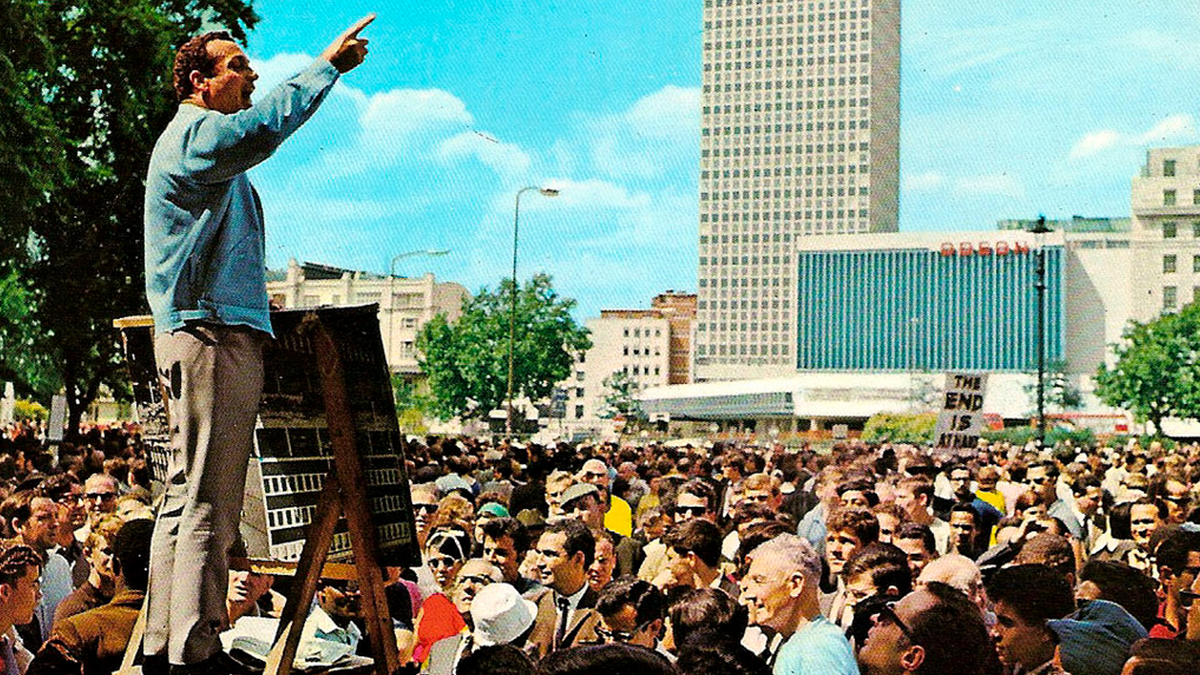Free speech rally in UK has its values mixed up
 Supplied
SuppliedIt’s high time that far-right free speech advocates learn what free speech actually means.
On May 6, thousands of Brits gathered in Hyde Park to participate in the “Day for Freedom” protest, an event organized in response to Tommy Robinson being permanently banned from Twitter for violating their hateful conduct policy. Robinson is the former leader of the English Defence League, a far-right organization that fights against what they claim is the spread of sharia law in the UK. While Twitter has not specified how Robinson violated the policy, Robinson claims that he was banned for tweeting “Islam promotes killing people.”
Robinson and his fellow protesters felt that they were being censored, that their freedom of speech was being curtailed. It was indeed curtailed, but there’s a reason for that. Contrary to the beliefs of many right-leaning free-speech advocates, there is no such thing as freedom of speech. Rather, there is simply an illusion of free speech that has to be maintained.
The philosopher Karl Popper came up with the useful idea of the “paradox of tolerance,” which states that if a society is tolerant of all views, no matter how extreme, its ability to be tolerant will be undermined by those who hold intolerant views. Free speech, then, is not about having the freedom to say whatever you like; it’s about placing limits on intolerant speech. Rather than striving to say whatever we like, we should be fighting to halt speech that attempts to silence others.
The views expressed by Robinson and his far-right cohort do not conform to this idea. They reduce the intricacies and complexities of Islam to a strawman, calling it an inherently violent religion when the same could be said for Judaism in Israel, or Buddhism in Burma if we used their argument. Such reductions undermine the platform of minority voices in two ways: first, by inciting fear of persecution, and secondly, by circulating the idea that these minority voices cannot be trusted, no matter what they say.
But xenophobic intolerance doesn’t stop at the words people speak: it influences the thoughts people have and the actions they take. If Islam is seen as an inherently violent religion, then some may choose to fight back with violence. Some people already have, such as an unnamed man yelling “death to Muslims” as he stabbed a man at a London train station, or Jakub Wendland, who set his dog on two Muslim people in Manchester because “[Muslims] kill people.” Intolerant speech doesn’t just silence groups in societal conversation: it also silences groups through inciting violence.
As Twitter’s hateful conduct policy states, “freedom of expression means little if voices are silenced because people are afraid to speak up.” Without limits on speech, people cannot be free to express themselves.
Carl Benjamin, also known as Sargon of Akkad, complained at the protest that those who counter-protested were only in favor of “curated speech.” He’s completely right. That is the only speech that truly exists, and the only kind we should fight for if we want to maintain freedom.




